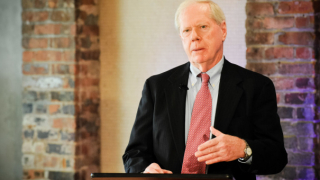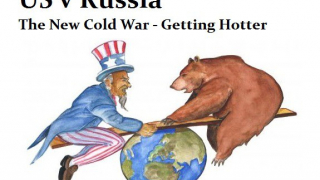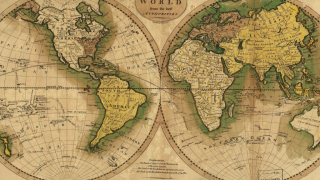Europe Looks East: The Crisis of Foreign and Domestic Policy in the USA
08.07.2015
- Is the US imploding under the weight of its own contradictions, and handing Europe to Russia on a platter? Inmate torture, child-abuse as 'therapy', gunboat diplomacy, drug abuse, the prison-industrial complex, police brutality, Color Revolutions, Ukrainian Nazis, pink-washed imperialism, and more, seems like post-modern dystopic fiction and a recipe for disaster. Will Russia and Europe find common cause?
An overview and introduction to the internally destabilizing US failures on issues ranging from race, class, and criminality within the US, to its imperial foreign policy aimed at unipolar hegemony through destabilization in the world. This piece touches on a number of subjects which are often presented as unrelated, but are brought together here as being a set of symptoms of the same ailment, resulting in a growing realization for more cooperation between the EU and Eurasian sphere if the US cannot adjust to the new reality of a multi-polar world of equal partners. -
The deterioration of the overall political and economic situation in the world is largely due to the irresponsible actions of the United States, aimed at preserving its hegemony, the imposition upon other countries of a certain socio-political model, presented as the only proper one, and an aggressive defense of its own interests are which are designated by Washington as global interests. This is causing an ostensibly undesirable reaction for Washington, as it threatens to push the EU and Eurasian spheres closer together
The reasons for this lay in the numerous crises phenomena characteristic of American society. There is a growing problem in the United States, which have both subjective and objective character. These are: subjective and superstructural - withdrawal of investment capital from the country due to a lack of confidence in speculation, unbalanced domestic policy resulting in social stratification (class) and interracial conflicts; as well as objective and apolitical - a sharp decline in production, declining rate of profit, capital-social development in competitive 'emerging' markets outside of the US that have now matured, inertia of subjective problems reaching points which irreversibly compound upon objective and apolitical spheres.
Unprecedented in modern American political life were statements by activists from a number of states (Hawaii, Alaska, Texas) about the illegitimacy of entry into the United States and, in the case of Hawaii, initiating the process of secession through the UN. Separatist movements were registered in other states (California), and opposition to federal policy expressed by representatives of various ethnic groups - the indigenous Native American population, African Americans, Hispanics. These vocal activists and organizations, according to the Reuters poll of Sept. 2014 (see: http://www.reuters.com/article/2014/09/20/us-usa-secession-exclusive-idU... ) represent the opinions of least 1/3rd of the citizens of the respective states, with between 20% and 25% being the sentiment regarding secession, nation-wide.
We will analyze the problems of modern America in more detail.
A crisis processes has been observed in the economy. In the four-year review of the State Department's diplomatic and development published in 2015 indicated that 46% of US goods were sold to trade partners through various agreements. Exports in general stimulated 11.7 million jobs in the US in 2013 [1]
Meanwhile, the fourth quarter of 2014 was marked by the growth of the current deficit to 98.9 billion. In the third quarter, to 113.5 billion. The deficit of goods and services rose to 127 billion in the fourth quarter of 2014, from 123.9 bn. in the third quarter. This statistic shows the growing problems, both in the purchasing power of the citizens of the US and in global financial and economic opportunities. If the US will not be able to resolve the issue of their deficits through the inflow of investment capital, the dollar will lose its value. But as for the purchase of debt which was needed to secure a recommendation of "secure" from the three international rating agencies located in the United States, it is obviously a case of artificial stimulation, demonstrating the speculative nature of such activities.
The growth of external debt for the US, and the "overheating" of the Federal Reserve System, responsible for the machinations of the global financial and economic system, with the dollar as the reserve currency, raises serious doubts about the competence of American politicians and economists. The collapse of the dollar system can lead to a domino effect similar to what was the collapse of the "dotcom" bubble in the stock exchange in 2001, but with more devastating consequences for the world, due to the binding of various national economies to the US dollar.
The oil sector in the US is also paralyzed. As of January 2015, 342 rigs had been closed out of 1140 functioning. When the price of oil drops below $50 per barrel, there is a high risk of rendering 40 thousand workers laid-off. If the immediately related industries are considered, this figure jumps to more than 120 thousand. The United Steel Workers union, resulting from a lack of progress in negotiations with the major oil companies to improve working conditions and win higher wages, staged a strike involving more than 5000 workers. This fact points to the growing problems of social stratification and class conflict in the US.
Events in Ferguson corroborate problems of race relations, social stratification, and the potential for conflict along both race and class lines. Meanwhile, supporters of the scientific field known as 'critical race theory', consider that racism in a veiled form has always remained in their country, and only for reasons of foreign policy imperatives, i.e., the desire for superiority in the confrontation with the Soviet Union on the issue of the level of democracy in society, people of color from time to time were given rights and freedoms, though in limited form.
According to the analyst and former Secretary of the Department of Homeland Security, Jeh Johnson, Islamophobia in the US is rising. According to the Social Research Center Social, 50% of Americans believe that Islam as a religion is more conducive to violence than other faiths. This trend runs counter to President Obama's assertions that social conflict on religious grounds in the US is less severe than in Europe.
At the beginning of 2015, on the eve of an international summit on combating violent extremism, the Southern Poverty Law Center conducted a study of the problem of domestic terrorism in the United States. 51% of terrorist incidents constituting so-called 'hate crimes' were motivated by "hatred" for racial, religious, or sexual grounds. 90% of them are carried out by individual citizens, and not by known groups or organizations.
Immigration policy in the United States reveals a double standard. While at the international level Washington stands for freedom of movement (one of the core beliefs of liberalism), even with migration flows in the EU reflecting and catalyzing problems in Europe, the demographic pressures the US exerts on Mexico are significant. This causes an influx of migrants to the US, causing the US to take protective measures, including the construction of physical barriers and other legal controls. In the south-western states, citizens have felt compelled in their spare time, organized over the internet, to engage in monitoring the border with Mexico through the installation of a network of surveillance cameras, as well as citizen 'vigilante' patrols, sometimes with questionable results on the level of basic human rights. Registered volunteers have a system wherein they call the border patrol centers and send operational information obtained from their surveillance system, about the whereabouts of ''illegal'' migrants. This trend also reveals another problem area at the intersection of race, identity, and class problems, which also directly involve issues of regional trade, NAFTA, and geopolitical concerns at the continental level.
The health status of citizens of the United States also shows negative trends, the health care reform program put in place by Obama and the major insurance companies actually cannot solve these problems.
According to the US National Institute on Alcohol Abuse and Alcoholism (a division of the National Institutes of Health) 14% of the adult US population suffers from alcoholism. These problems are experienced by about 27 million Americans.
A no less serious situation is drug use. In 2013, 36% of students reported that they had used marijuana, which on the face of it may not be so alarming. But earlier, in 2006 this figure was at 30%. Large levels of drug use has been noted among youth. At the same time, most of the drugs cited here relate to prohibited and not medically prescribed narcotics. The contribution to this problem by pharmaceutical companies, both through over-the-counter and prescriptions is perhaps even more concerning in terms of long-term health.
In addition, the website of the National Institute on Drug Abuse announced an extremely negative trend of increasing overdoses from the use of synthetic drugs (Spice, K2, etc.) in a number of states, as of May 8, 2015. [2]
In the area of childcare, there have been problems with foster care in the United States, where children are often victimized by their caretakers. The human rights organization "Advocates for Children in Therapy" indicates that the prevalence of bullying and beating of children has been contributed to by the so-called "Attachment Therapy", wherein the abuse of children is actually part of the therapy.
"Attachment Therapy" is widely used as a means of caring for foster children, but it is more like torture and is dangerous for the life and health of the foster children. The US government has done nothing to prevent the emergence and widespread practice of this theory. This theory can be said to be giving validity, legal cover, and some pseudo-scientific justification for the historically known problem of foster child abuse in group homes within the US.
The torture of children within the US is mirrored in its practices abroad. The scandal over the torture of prisoners at Guantanamo (in occupied Cuban territory), Abu Ghraib (in Iraq) and other secret CIA prisons also continued, and this discredits and even implicates a much larger number of people and organizations in the area of psychology, psychiatry, and mental healthcare, which are involved with or cooperating with, US intelligence agencies.
An article in the "New York Times" on April 30th, 2015 states that the American Psychological Association (APA) has worked with the administration of George Bush on the question of justifying and legitimating torture when applied to prisoners and detainees within the framework of the US's "War on Terror". [3] A group of dissident human rights activists, psychologists and occupational doctors who documented violations of medical ethics in the consultation process, published a report which implicated representatives of the APA and the CIA. [4] The public representative of the APA, Rhea Farbermen, rejected accusations that their group performed on orders of the government. But this was contradicted by the Assistant Secretary of Defense for Health Affairs, William Winkenwerder, who confirmed that the Pentagon sought help of psychologists. Thus the double standards, hypocrisy, and intentional obfuscation which permeates the US scientific community are revealed.
In addition, the dissident group studied declassified documents, that indicate that psychologists the CIA employed were two representatives of the APA - James Mitchell and Bruce Jessen - who helped work on the program of torture by the CIA in secret prisons around the world. These declassified reports contain language that they "do special things with the special people in special places."
Further evidence that the United States has arrived at a morally questionable dead-end can be seen at least in the position of Princeton University professoer Peter Singer, who on a live radio broadcast on April 19, 2015 on the waves of New York's AM 970 show "The Answer", and Philadelphia's News Talk 990 AM, called upon doctors to kill newborn disabled babies. [5]
He justified this by the need to rationalize the US health care program known as Obamacare. Singer is a supporter of the so-called "non-voluntary euthanasia," movement, i.e., killing people without their consent, which may include children, the elderly, and people who after an accident have become disabled.
These examples above are completely inconsistent with the Universal Declaration of Human Rights, which states that everyone has the right to life (Art. 3), and no one shall be subjected to torture or to cruel, inhuman or degrading treatment or punishment (Art. 5).
It is also obvious that the statements of Singer wildly contradict the US's own framework, enshrined in Declaration of Independence, which states that "all men are created equal and endowed by their Creator with certain unalienable Rights, that among these are Life, Liberty and the pursuit of happiness." For example, Singer maintains that our conception of what makes 'a living person' is an error, it is not based on the fact that a person is 'alive' in the clinical sense. Instead, he argues that it is "characteristics such as rationality, autonomy and self-awareness that make a difference."
These problems are typical of modern America, resulting from the American worldview, and complicit in this crimes against humanity are its own policy managers and executors.
Again, these problems are manifested upon the world at large. The inadequate (or intentional) strategy of Washington against a number of countries has led to the destabilization of entire regions. Intervention in internal affairs, including through a coup tactic disguised as "color revolutions" plunged North Africa and the Middle East into bloody chaos. In Europe, a similar trend is observed.
After the active participation of the United States with the assistance of some European politicians to overthrow the government of Viktor Yanukovych in Kiev, Ukraine was gripped by a severe social and political crisis, compounded by ultra-nationalism. This leading US policy called the organizers of murder and other serious crimes in Ukraine "peaceful protesters" and "freedom fighters", and by this denied the right to freedom of expression and equal protection under the law of ordinary citizens who represent a variety of ethnic, political, and social groups.
Since the beginning of the Ukrainian crisis the United States has had full control of the negotiation process in Ukraine, on behalf of the Kiev government. It was revealed in February 2015, a telephone conversation between the French Foreign Minister, Laurent Fabius, with John Kerry, which showed that the main content of the talks the leaders of Europe had with Russian President Vladimir Putin to resolve the Ukrainian conflict were coordinated by the US Secretary of State.
The vast American influence on the position of Kiev shows Washington's total guilt in the escalation of the situation and in the deaths of thousands of civilians in the south-east of Ukraine. It is the maintenance of tensions in the region, in a predictably stalwart opposition to any Russian support for the people of Donbass, which allows the White House to create a relatively high degree of negative perception for Europeans about Kremlin policy on the Ukrainian question, and then continue to block any possible rapprochement.
In Ukraine, the USA is interested in maintaining or escalating the conflict, which is beneficial to Washington for several reasons, some which may contradict each other or relate to various contingencies in the event of the failure of the others:
1) privatization of real estate and land by US companies;
2) capture different markets in Ukraine and the establishment of long-term dependence regime through international agreements;
3) the sale of various goods Ukrainian military-industrial complex;
4) manipulation of the EU under the pretext of diversification of energy resources (replacement of natural gas exports from Russia, which, in fact, there is no alternative);
5) preservation of a buffer zone between Russia and the EU - this idea was developed in the early twentieth century. Anglo-Saxon ideologues - not afford to join a union of Russia, China and Germany;
6) experiments in social engineering, in particular, the imposition of bourgeois gender policy (promotion of a 'elite' homonormative over 'commoner' heteronormative;), which can be used later in other regions;
7) A 'black hole' sapping of Russian resources, creating political instability and internal dissention in all social strata over real or perceived losses in Eurasian space;
8) Alternatively, the potential to use the conflict in Ukraine to create an ever broader conflict in the region, and beyond, including the destruction of Ukrainian institutions and a scorched earth policy (failed state);
9) Provocation of Russia to act openly and defensively within Eurasian space, which will be used by the west to justify increased military and economic activity against Russia and Eurasian Union states.
With strong pressure from the US, the threat of the use of the Ukrainian scenario against legitimate governments are being faced by a number of countries in the Balkan region. The latest example - Macedonia, where mass protests and attacks were organized immediately after the statement of the Prime Minister's interest in the participation of the gas pipeline "Turkish Stream", which was strongly opposed by Washington. It should be noted that the capital - Skopje- the US Embassy functions as a base of intelligence gathering and a logistics hub, to monitor and influence the situation throughout the Balkans.
One of the essential problems of the world is the emergence of an Islamic state. Declassified documents distributed by WikiLeaks to world press and intelligence agencies also showed that IS was created on the initiative of the CIA during the beginning of the "Arab Spring."
The organization "Judicial Watch", on the basis of these kinds of revelations, has determined that the US Defense Department and the State Department actually participated in the creation of an Islamic state. [6] According to Judicial Watch, Washington coordinated that Libyan weapons seizures by the rebels in Benghazi were sent to jihadists in Syria. In addition, it was found that the information on the preparation of an attack on the US Consulate by Islamists in Benghazi, had been known for at least 10 days prior to the attack, which was carried out by the organization "Brigades of prisoner Omar Abdul Rahman," associated with the Muslim Brotherhood and Al Qaeda.
The Middle East, Ukraine and the Balkans - these are the most optimal target regions for US intervention involving European partners. Thus we see here the attempts to displace other geopolitical forces, in particular in the Balkans - Russia and China, which have their own economic projects in the framework of bilateral relations and towards multipolarity.
In parallel, the United States works to stimulate migration flows to Europe, the recent upsurge of which are the result of upheavals in North Africa and the Middle East and, as well as the military intervention in Iraq and Afghanistan. These processes destroy the European cultural, civilizational and religious identity, atomizing populations and ripening them for further control by commercial, mercantile, and corporate forces. This is despite the recognition of the leaders of Germany and France that the policy of multiculturalism has been a failure, an exported policy developed in the US in the 60's in response to its own historical race, class, and colonial problems.
Washington insists on its continuation, which destroys the long-standing European institutions and subverts decision-making on important issues. Although there is a positive experience in several countries (Switzerland, not a member of the EU, decided by referendum the question of migration and Islamization, that was reflected in the crime statistics), the EU continues to hold to neoliberal policies, which could eventually lead to a change in the demographic balance and serious civil conflict.
Islamic fundamentalism is used as a tool of US policy in Europe. In some cases this is done almost openly. For example, the leader of the Albanian terrorists who killed the Macedonian police in Kumanovo was a close friend of the US ambassador to that country.
Similarly, use of religious "Christian" fundamentalists is another factor; post-Protestant sects , evangelical sects, and 'new religious cults' that have headquarters in the United States - the Jehovah's Witnesses, the Church of Latter Day Saints (Mormons), 7th Day Adventist Church, and - while not Christian at all, it must be included - the Church of Scientology. Many American citizens working on official US projects abroad, as well as well placed individuals at prestigious universities, are members of, or are closely connected to, these various tightly knit sects, which exercise considerable control over their memberships and are able to regulate in-group behavior.
This issue of cults such as Scientology, reaches into Ukraine, with the coup-installed prime minister Arseni Yatsenyuk likely being a member of the Church of Scientology - a claim which he denies but which there are considerable reasons to think are true (see: http://m.strategic-culture.org/news/2014/04/01/the-charge-of-the-sciento...). These religious organizations act as both vetting and control mechanisms.
Washington carries out its agenda in Europe by a number of institutions - NATO, the European Parliament, the European branch of the Council on Foreign Relations, foundations such as the Carnegie Foundation, the European branch of the RAND Corporation, the National Endowment for Democracy, and others. The work on the ground allows the US to respond quickly to local problems, to carry out the required and measured social changes which the US wants to make in Europe, which subsequently is a part of the implementation of the overall strategy of Washington in relation to Europe.
At the level of bilateral relations and joint activities, American diplomats, representatives of the White House and the President of the United States directly influence the EU leaders. An illustrative example is the statement of Prime Minister David Cameron, who, after meeting with Obama, said that governments should exclude those who advocate for a way out of the EU. He put forward that those who favor putting the question of EU membership to a referendum would have their relationship within the EU legal structures critically reviewed as a consequence, even though earlier, and hypocritically, he had just spoken about the future of his own country's withdrawal from the association.
NATO, which is known to be led by the US, had previously raised the issue about increasing the contribution of each member to 2% of GDP, as well as active participation in various operations and maneuvers, the most ambitious of them stemming from the NATO summit "Transformation for the Future, Serious Failure in the Moment" (see: http://www.atlanticcouncil.org/events/past-events/nato-s-summit-transfor... ) - It began in 2014 and officially does not have an end date.
These proposed cost increases by the US were received very critically by many members of NATO, but the rhetoric about the need to increase funding for the needs of the alliance is taking place concurrently with a promise from the US for economic aid to a number of countries that strictly comply with all the requirements of Washington (Poland, Romania, Latvia, Lithuania, Estonia).
Against the backdrop of the crisis is the mismatch of the globally oriented, NATO allied, political elites in the EU versus the wishes of the majority of the population in many countries where there is a tendency of both left and right pro-social populism combined with nationalism and anti-imperialism.
According to Stratfor, the last 10 years the level of citizens' trust in the EU institutions has dropped significantly, while the support of the national idea is the high stability.
As part of the picture of nationalism, left and right populism, and identity among broad sections of the masses of EU member states is the matter of their attitude towards sanctions against Russia; this also reveals certain dynamics.
Thus, the growing influence of eurosceptic parties is directly related to the choice of the strategic vectors - between the US and Russia. As a rule, moderate and radical skeptics, despite the political struggle with each other and competition for influence, are in favor of the lifting of sanctions imposed against Russia.
According to the analysis from Stratfor, the future configuration of the EU may be two levels - the first consisting of the EU institutions with the leading role of Germany, will try to continue integration policy; the second level will include associate members who are interested in receiving preferences from the membership in the euro zone, but not to be subjected to further assimilation. In addition, France may return to the idea of a Mediterranean Union - a project that has been blocked by Germany since its inception.
Such a multi-vector policy of the EU member states, if successfully implemented in any of the ongoing projects, will help any member of the EU improve bilateral relations with Russia as a natural partner. This resumption of cooperation with Russia, in turn, will benefit European countries that are now experiencing a serious decline of turnover and services due to the present US enforced sanctions policy.
Meanwhile the United States implements a wide range of aggressive interventions against states and/or political forces which adequately understand the destructive role of Washington in the current process and try to resist it. This even includes states and political forces engaged in the dissemination of truthful information through alternative media.
Putting pressure on the EU and other partners, the United States has a pragmatic interest since Washington needs draw into its zone of economic influence as many states as possible: this is critical for the US to be the primary beneficiary of the global economy.
Obama economic adviser Jason Furman, in particular, noted that the United States lobbied hard: " As I mentioned in my speech at Brookings earlier today, values-driven trade agreements, like the Trans-Pacific Partnership (TPP) and the Transatlantic Trade and Investment Partnership (T-TIP), will put the United States at the center of integrated trade zones making up nearly two-thirds of the world economy.." (see: https://www.whitehouse.gov/blog/2015/04/08/4-ways-trade-drives-american-... .)
However, the European public is critical of the initiative of the United States. The researchers note that, according to international norms and laws, EU officials only have a mandate to negotiate, but behind closed doors are under US pressure. Moreover, from Washington there were repeated attempts to undermine the European data protection rules. [7] This is evidenced by the reports of both European and American consumer organizations and civil society representatives. Such actions are usually carried out through the lobbying of corporate law-firms such as Hogan Lovells, which created the front, cynically titled, the "Coalition for Privacy and Free Trade". Obviously connected are the direct political interests of the US, as the company Hogan Lovells has in their employment such heavyweights as former US Ambassador to the EU Hugo Paemen, and former US Trade Representative Clayton Yeutter, former deputy head of the Internet Policy in the White House Daniel Weitzner. [8]
A group of authors in the article "How Elites and the Public See US Foreign Policy", published in a special edition of "Foreign Affairs", notes that "there is a gap between the political preferences of society and the actions of the leaders of the country. After some time, this gap could undermine Washington's ability to project to the international arena their authority and credibility, and create democratic accountability at home. " [9]
Meanwhile, along with the eurosceptics, the old political elite of Europe also criticized the actions of the US and those who support them.
The visit of the former French President Giscard d'Estaing at the end of May 2015 in Moscow, where he delivered a lecture at the Moscow State University and criticized American foreign policy and the countries that follow the path Washington, shows reluctance on the part of the European political elite to serve the interests of the United States.
Some experts convincingly explain why sanctions against Russia are unprofitable for the EU. According to the American political analyst living in Germany, William Engdahl, EU sanctions against Russia "ricocheted back", which resulted not only in the prohibition of the supply of food from Europe but in Russia's transition to self-sufficiency and a search new suppliers, who they have found in Asian, African and Latin American countries. They suspended multimillion-dollar contracts with the German Siemens and the French Total S.A. [10]
At a press conference April 14, 2015 in Paris, Prime Minister of Bulgaria B. Borisov said that his country, in the event of implementing "South Stream", would become a "gas hub" of energy resource transit to the EU. And now when the project is actually folded, resulting from his vacillation and ultimate reneging, he is waiting for help for compensation for "lost benefits" from the initiators of the anti-Russian sanctions. Attending the event, Francois Hollande expressed the view that France would cover its own costs if it had found itself in the same position as Sofia. While Hollande spoke in general terms about hypothetical French private investment in Bulgarian energy markets, the same decisions of the Sofia government to renege on the pipeline project ultimately undermined Paris's profitable energy talks with Russia.
In the United States, actual advisers and decision makers actually have an objective assessment of the sanctions. Stephen Sestanovich of the Council on Foreign Relations stated in a testimony regarding European sanctions on Russia to the Senate Committee on Armed Services on April 28, 2015 that "many people say they did not work well ... Putin has convinced the public that Russia should not be pressured" . [11] For himself, he added that he considers the sanctions effective as a solution to political issues. The influential publication Foreign Policy also indicates that sanctions against Russia are not working, but due to the myth of their efficiency, many continue to think that they are an important instrument of US foreign policy. [12]
Concluding Thoughts
The United States has a number of foreign and domestic policy problems which are both corrosive and inherent. Consequently, there is a growing opinion among those in the US that their state would be better off if it exited the United States. US debt grows, markets for US goods shrink, and global energy markets are finding solutions which increasingly do not rely on the US approved middle-men, including the petrodollar. The Federal Reserve has essentially doubled the number of dollars in circulation since 2008, while the US uses all forms of hard and soft power to maintain a dollar value which does not reflect the present saturation.
The US uses Islamophobia and Russophobia to justify its foreign policy and related spending, pushing forward unpopular immigration solutions both in Europe and the US. Simultaneously, deviant behavior such as drug and alcohol abuse remains high, which reflects both failed policy in any number of related spheres compounded by a culture of alienation which requires escape.
US policy on Europe, looking abroad, has increasingly alienated its once solid ally. An analysis of political parties and electoral preferences, the social situation, including alternative media in Europe, shows that the vast majority are tired of the totalitarian Washington regime, which is disguised by the rhetoric of human rights, humanism, and the search for the mythical threat (recently this scarecrow is Russian). Mass protests against the signing of the transatlantic partnership agreement attest to its unpopularity; virtually unanimous is the view that this law has been lobbied for with the exclusive interest of the United States, and a few large multinational corporations in mind. This is to the detriment of the rights and freedoms of European people. Previous agreements between the US and the EU on communication and information sharing across Europe also raised serious criticism.
The inability of the US to create for itself a mission and identity not based on a hegemonic identity of 'global leadership' is reflective not only of inherited modes of thinking from the relatively recent past, but also reflects an inability to shift gears and interact with a world which neither requires or desires such leadership and unipolar hegemony.
The economic foundation in the military-industrial complex has created a system where gunboat diplomacy and various coup techniques are employed to maintain markets for US goods and services, instead of building genuinely competitive enterprises which use labor saving technologies and superior techniques to produce higher quality commodities and a better cost.
Towards that end, the US has instead plunged several regions of the world from Eastern Europe to the Middle-East into states of perpetual strife, in order to maintain a competitive edge and frustrate its perceived geostrategic opponents.
The trans-humanist project, promoted by the United States, is increasingly perceived in the EU as a mechanism of the destruction of European nations with a rich culture and history. Unfortunately, a number of laws, such as the legalization of gay marriage and gender education have already been implemented in Europe, but they cause serious resistance in the vast majority and may be revised in the future. On the face of it, they may seem benign, when in fact the ruling class is not basing these 'legal reforms' based on a mass-popular upsurge from below. Several matters confuse this - one is the generally uncompassionate and shrill tone of those who oppose gender education etc., who pander to the politics of 'moral panic' instead of looking at the balance of rights and interests of all parties involved.
The other is the manner in which elites are able to stage these gender/identity 'struggles' making them appear as mass-popular upsurges, when by and large they are not - they do not affect the vast majority of people and do nothing to respond to the very real issues of employment, education, housing, war, and other concerns. On the one hand, these serve as cynically placed wedge issues which divide constituents around issues with high emotive charge and content. On the other hand they work long-term towards building or reinforcing a repressive mechanism that simultaneously shames or relativizes the gender or sexuality of 95-99% of the population; thus privileging minoritarian gender issues in a manner which mirrors the minoritarian property rights of the ruling class.
The rejection of the west's Gender/sex identity politics are being used by the US not only as a litmus test but increasingly as a casus belli. Imperial ambitions are being pink-washed as human rights concerns.
Other projects from the US are aimed at exporting the unique forms of psychological traumas and disorders to the rest of the world. From foster care child abuse, to Guantanamo bay torture chambers, there is a continuum of practice; one may be seen as the training ground for the other. A society that produces one will almost inevitably produce the other, even if policy weren't oriented with the aim in mind.
The whole doctrine of exclusivity and messianism, professed by the political elite in the US states is increasingly rejected by the EU and other regions, which automatically brings to the agenda the strengthening of national sovereignty and the establishment of regional alliances (multipolarity). This scenario is the only possible alternative for the world political system, if the task is to eliminate the consequences of the irresponsible behavior of the United States, achieve a stabilization of the international economy, and bring an end to conflict.
References:














